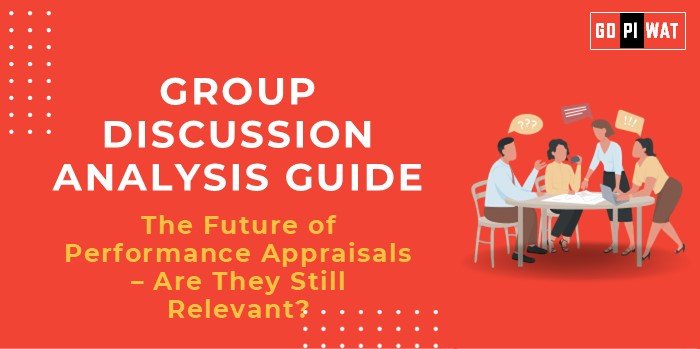📋 The Future of Performance Appraisals – Are They Still Relevant?
🌐 Introduction
Performance appraisals have traditionally been a cornerstone of organizational management. However, in an era defined by rapid technological change, flexible work environments, and an increasing focus on employee well-being, their relevance is under scrutiny. This discussion explores the evolving landscape of performance evaluations and their potential transformation.
📊 Quick Facts and Key Statistics
- 🔄 360-Degree Appraisals Usage: Adopted by 85% of Fortune 500 companies, indicating a shift toward collaborative assessments.
- 📈 Performance Management Software Growth: Market expected to reach $5.6 billion by 2027, reflecting increasing reliance on digital tools.
- 😊 Employee Satisfaction: Only 14% of employees strongly agree that performance reviews inspire improvement (Gallup, 2023).
- ⏱️ Frequency of Feedback: 65% of employees prefer continuous feedback over annual appraisals (LinkedIn, 2023).
👥 Stakeholders and Their Roles
- 🏢 Organizations: Aim to align employee performance with business goals.
- 👩💼 Employees: Seek constructive feedback and development opportunities.
- 📋 HR Professionals: Design and implement appraisal systems that balance fairness and effectiveness.
- 💻 Technology Providers: Offer tools to digitize and streamline performance management.
🏆 Achievements and Challenges
🌟 Achievements:
- ✅ Improved Organizational Alignment: Appraisals ensure individual goals align with organizational objectives.
- 📊 Enhanced Data-Driven Decisions: Digital tools provide metrics for precise evaluations.
- 📈 Focus on Development: Progressive methods emphasize growth over judgment.
⚠️ Challenges:
- 📋 Bias and Subjectivity: Traditional methods often fail to eliminate evaluator bias.
- ⏳ Time-Intensive Processes: Annual reviews may not keep up with real-time organizational needs.
- 😟 Employee Dissatisfaction: Over 50% of employees find traditional appraisals stressful and counterproductive.
🌍 Global Comparisons:
- 🔄 Netflix: Eliminated appraisals in favor of real-time feedback.
- 📋 Google: Uses OKRs (Objectives and Key Results) for performance tracking.
📖 Case Study:
- 📈 GE’s Transition: Replaced annual reviews with continuous feedback, improving employee satisfaction by 20%.
🗨️ Structured Arguments for Discussion
- ✔️ Supporting Stance: “Performance appraisals ensure accountability and promote alignment with organizational goals.”
- ❌ Opposing Stance: “Traditional appraisals are outdated, fostering stress and limiting real-time adaptability.”
- ⚖️ Balanced Perspective: “While performance appraisals are imperfect, hybrid approaches can blend structure with agility.”
💡 Effective Discussion Approaches
- 📊 Opening Approaches:
- “With only 14% of employees feeling inspired by appraisals, how can organizations modernize this process?”
- “The debate on appraisals highlights a tension between tradition and innovation.”
- 🛡️ Counter-Argument Handling:“While appraisals face criticism, incorporating tools like OKRs can mitigate drawbacks.”
📈 Strategic Analysis of Strengths and Weaknesses
✅ Strengths:
- 📋 Enhances accountability.
- 📊 Aligns personal and organizational goals.
❌ Weaknesses:
- ⏳ Inflexibility and stress-inducing.
- 🤝 Often fails to capture team dynamics.
🌟 Opportunities:
- 🤖 Adoption of AI-driven tools for real-time insights.
- 🔄 Integration of continuous feedback systems.
⚠️ Threats:
- 📉 Risk of disengagement if not modernized.
- 💼 Increased employee turnover in response to poor appraisal systems.
🎓 Connecting with B-School Applications
- 📂 Real-World Applications: Analyze HR trends or design innovative performance evaluation systems.
- 💬 Sample Interview Questions:
- “How can technology enhance performance management?”
- “Discuss the relevance of appraisals in dynamic industries.”
- 📚 Insights for B-School Students:
- Importance of balancing analytics with emotional intelligence.
- Opportunities to lead HR transformation initiatives.


